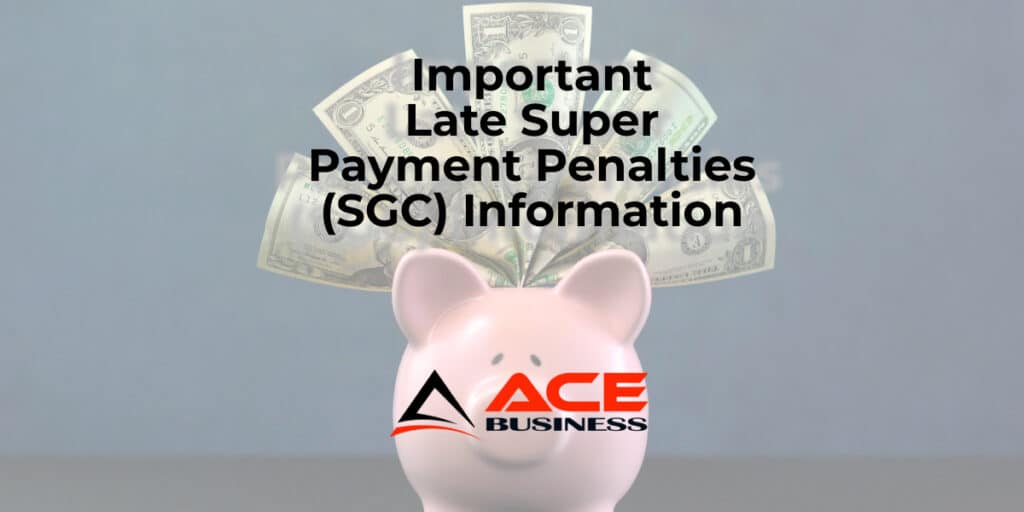
If you are an employer in Australia, you have a legal obligation to pay a minimum amount of superannuation for your eligible employees. This is called the super guarantee (SG), and it is currently 11% of your employees’ ordinary time earnings. The Super rate is set to increase by 0.5% per year until it reaches 12% in July 2025.
But what happens if you fail to pay the correct Super amount on time or to the right fund? In that case, you will be liable for the super guarantee charge (SGC), which is a penalty imposed by the Australian Taxation Office (ATO) and is not tax deductible.
The SGC penalty consists of four components:
- The Super shortfall: This is the difference between the Super amount you should have paid and the amount you actually paid.
- The choice liability: This applies if you did not offer your employees a choice of super fund or did not act on their choice. The choice liability is based on the Super shortfall and capped at $500 per employee per quarter.
- The nominal interest: This is calculated at 10% per annum from the start of the relevant quarter to the date you lodge your SGC statement.
- The administration fee: This is $20 per employee for each quarter you lodge. (You have to do the lodgements for each quarter individually)
The SGC Penalty is due one month after the Super payment deadline, which is 28 days after the end of each quarter.
The 1 July to 30 September 2023 Quarter the Super payment deadline is 28 October 2023.
This is a deadline for the Superannuation companies to receive the payment. Payments may take up to 7 business days to be transferred through to the super fund so you need to allow for enough time. Be sure to allow enough time for it to transfer.
If payments are received even 1 day late, you can’t claim the tax deduction.
With Single Touch Payroll the ATO has all of these records readily available.
Tax Deduction Consequences of not paying super guarantee (SG)on time
One of the consequences of not paying super on time for your employees is that you lose the ability to claim the super payments as tax deductions. This means that you will have to pay more tax on your business profits. According to the Australian Taxation Office (ATO), you can only claim a tax deduction for super guarantee payments you make for employees in the financial year if it’s paid on time, regardless of whether your accounts are reported on a cash or an accrual basis. Contributions are considered paid when the super fund receives them. Therefore, if you miss the quarterly due date, you cannot deduct the super payments from your taxable income. For more information, please visit the ATO website on super guarantee payments and tax deductions.
This isn’t included in your regular accounting fees
To set up and lodge the spreadsheets isn’t a part of your monthly or annual accounting fee commitments. Doing these takes time and it would cost you extra money for an accountant to put these together and lodge them on your behalf.
It’s Just Not Worth It
Just pay the superannuation on time.
- It’s your employee’s retirement fund money, not your money
- You won’t be able to claim your super payments as a tax deduction. The ATO has these records and will disallow the deduction
- It could cost you a lot of extra money in penalties
- You could also get director penalties
- It could cost you more in accounting fees
